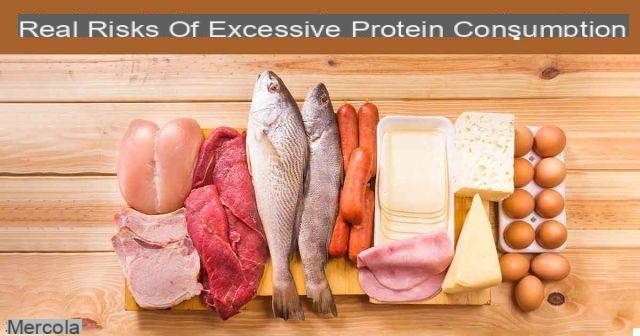
Introduction
What are proteins used for?
Proteins are the basis of life itself: essential for the skin, hair, bones, they produce hormones, allow the immune system to function optimally and, in the case of athletes, are essential for muscle growth.
protein intake
Lack of protein
A lack of protein, therefore, will induce an imbalance of all the events mentioned above, fundamental for life and growth. In fact, if the nutritional intake is not the best, proteins are sacrificed for energy and this happens through muscle catabolism, which will prevent any increase in muscle mass.
Taking
The role of proteins as essential components of health and performance cannot fail to be confirmed by the most recent research. The dispute over the different protein intakes arises, however, between the official and non-official medical community.
How Much Protein to Take? It depends
The first believes that a protein intake of just under or equal to 1,0 g / kg of physiological body weight is sufficient to avoid its deficiency in sedentary people, and that slightly higher quantities may also be adequate for athletes; the second, on the other hand, argues that in the case of intense and / or prolonged motor activity, this level should be at least doubled (from just over 1,5 g / kg, up to and over 2,0 g / kg of physiological weight).
Too little or too much protein
Assuming that any excess in life hurts, it is believed that the intake of 0,9 g / kg of protein is really too low for a sportsman, especially if practicing strength or bodybuilding activities. On the other hand, there continues to be some confusion due to the usual legacy of the great bodybuilders of the past but also of the present. These, thanks to the high protein synthesis due to the disproportionate use of doping drugs, reaching 5,0 or 6,0 g / kg of protein, with less evident consequences than one might believe; even if kidney complications are far from rare in the environment.
Protein requirement of athletes
The simple "natural" sportsman, especially if he is fond of his health, certainly cannot reach this quantity; at the same time, however, it must not be reduced to taking in less than 1,0 g / kg of protein without having a stall in muscle growth or in any case difficulties in supercompensation and recovery.
Therefore, a protein periodization that takes into account the discipline practiced, the state of health, the amount of muscle mass, age and work activity, is undoubtedly the most recommended choice. Without reaching the classic excesses - always deleterious, even for the sportsman - you can take from 1,2-1,4 to over 2,2-2,4 g / kg of physiological weight (at certain times of the year) without having problems whatsoever; for greater guarantees, it is recommended to monitor the nitrogen balance.
False Myths
In this regard, it is better to dispel some myths:
- Diets with more protein than recommended can damage the kidneys: Studies only show that a high-protein diet can worsen conditions in people who already have kidney disease. There are currently no studies that demonstrate the harmfulness of a "high-protein" diet on healthy people
- The protein requirement is the same for everyone: athletes not only need more protein, but they must also increase the share of other macro- and micro nutrients. An athlete, in fact, in addition to burning calories for the normal physiological functions of the body (basal metabolism) must also train and support greater muscle mass. It is unthinkable for an athlete or a sedentary person to consume the same percentages of food and in particular of proteins
- Protein absorption is limited to 30 g at a time: even excluding the studies that prove the opposite, if taken "rigidly", this statement is too generalized, ie it does not take into account individual variability
- Animal proteins are better than vegetable ones: proteins are polymers of amino acids; those with a High Biological Value (VB) have a quantity and a proportion of the essential ones closer to human needs. On the other hand, each protein must be digested and reduced to amino acids for absorption. In the end, what matters is the availability of essential amino acids; no matter what protein they come from. However, it is to animal foods that the greatest VB is attributed, which is why, by taking meat, fish, eggs and milk or derivatives, it is not necessary to pay attention to any "limiting" amino acids. With plant foods, on the other hand, greater care is required in varying the food source to ensure that the pool of essential amino acids indispensable for protein synthesis is completed.


























